History
Art, Culture, History.
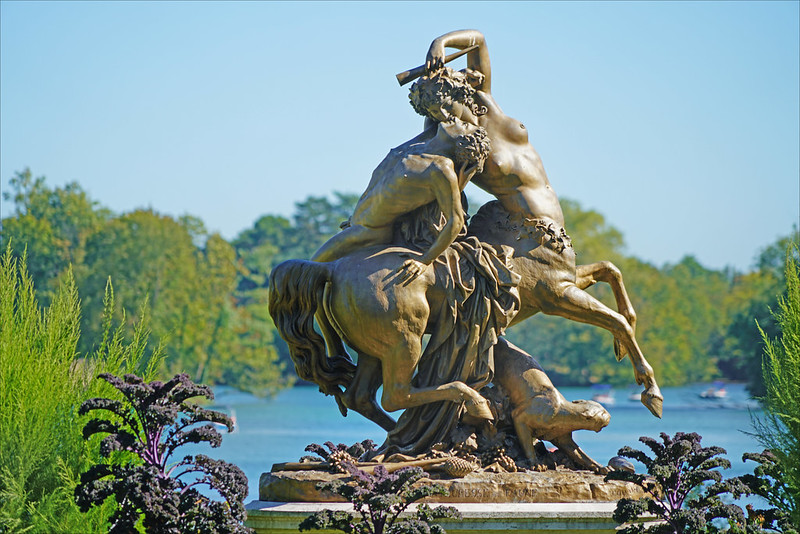
In the Roman era, Lyon was known as Lugdunum and was an important center of trade and commerce.
During the Middle Ages, Lyon became a center of the silk industry and was known for its luxurious textiles. It was also a center of banking and finance, with the creation of the first modern banking system by the Italian merchant bankers.
During the 18th century, Lyon became a center of the Enlightenment, with many prominent philosophers and thinkers residing in the city. It was also a center of the French Revolution, with the fall of the Bastille being celebrated in the city.
In the 19th century, Lyon became an important center of industry, with the creation of the silk industry and the establishment of factories. It was also a center of the resistance during World War II, with many brave individuals standing up against the Nazi occupation.
Today, Lyon is a vibrant city with a rich cultural heritage and a thriving economy. It is known for its gastronomy, with many famous chefs hailing from the city, and for its stunning architecture, including the historic Old Town and the modernist Confluence district.
"A Lyon, la vraie lumière ne vient pas d’en haut, mais d’en bas"
-- Frédéric Dard
Meet The Lyon History
More than 2000 years of history in a nutshell.
The past
The present
The future
A GLANCE TO
The Past
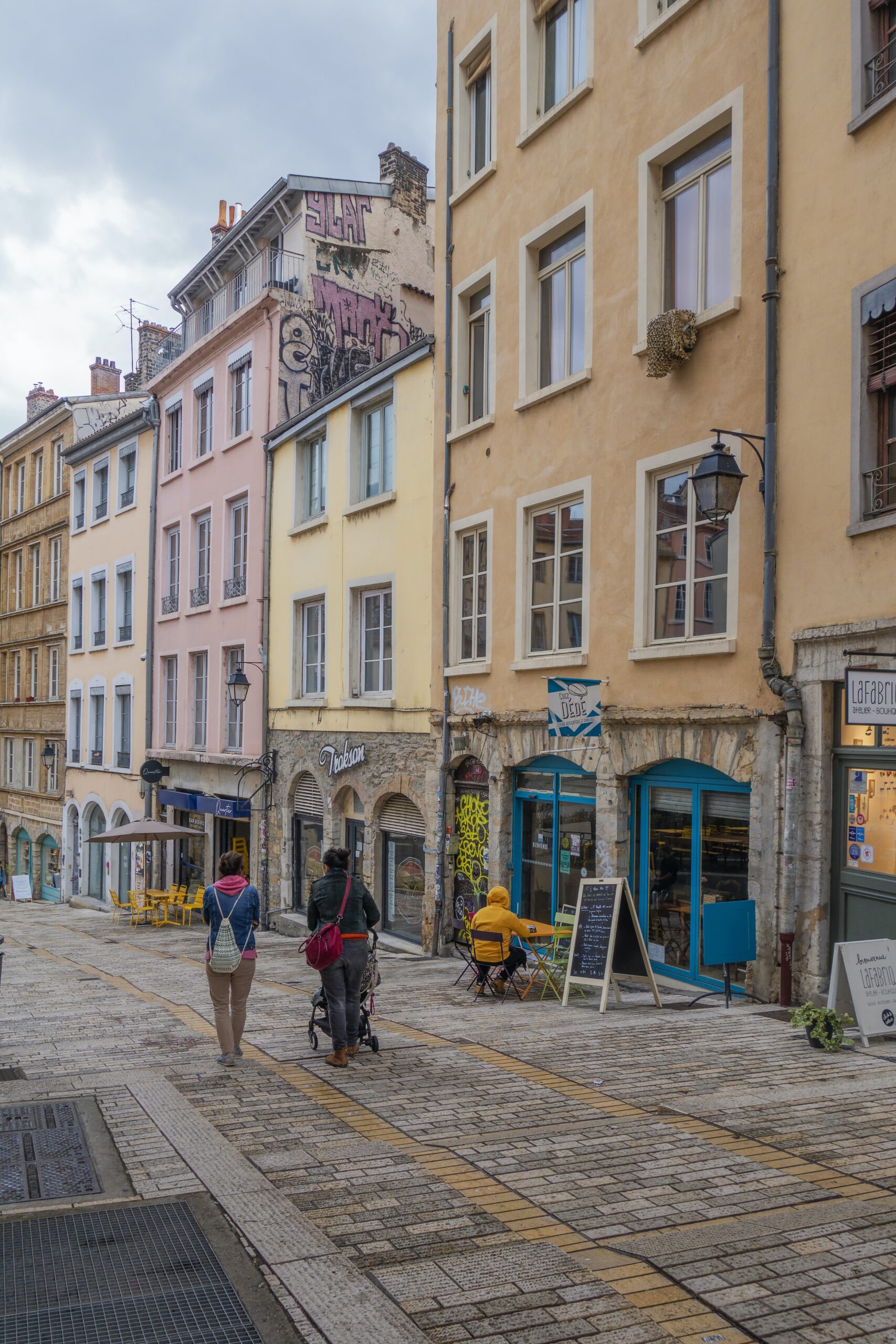
Lyon is a city in east-central France with a long and fascinating history. The area has been inhabited since prehistoric times, and Lyon played an important role during the Roman Empire.
Founded in 43 BC, Lyon, known as Lugdunum, was an important city of Gaul and a major hub for trade and commerce. It was also a religious center, with a temple dedicated to the Roman Emperor Augustus. During this time, the city prospered and grew, with many impressive buildings and monuments constructed, including an amphitheater that could hold up to 10,000 people.
In the Middle Ages, Lyon became a center of the silk industry, which brought significant wealth to the city. It was also a center for banking and finance, with the creation of the first modern banking system by the Italian merchant bankers.
During this period, Lyon also played a significant role in the religious conflicts of the time, as a center of the Protestant Reformation.
In the 18th century, Lyon became a hub of the Enlightenment and was known for its famous philosophers and thinkers, including Voltaire and Rousseau. During the French Revolution, the city was an important center of revolutionary activity, and the fall of the Bastille was celebrated in the city.
In the 19th century, Lyon continued to grow and expand as a major industrial city, particularly in the silk industry. The city was also a center of resistance during World War II, with many individuals risking their lives to resist the Nazi occupation.
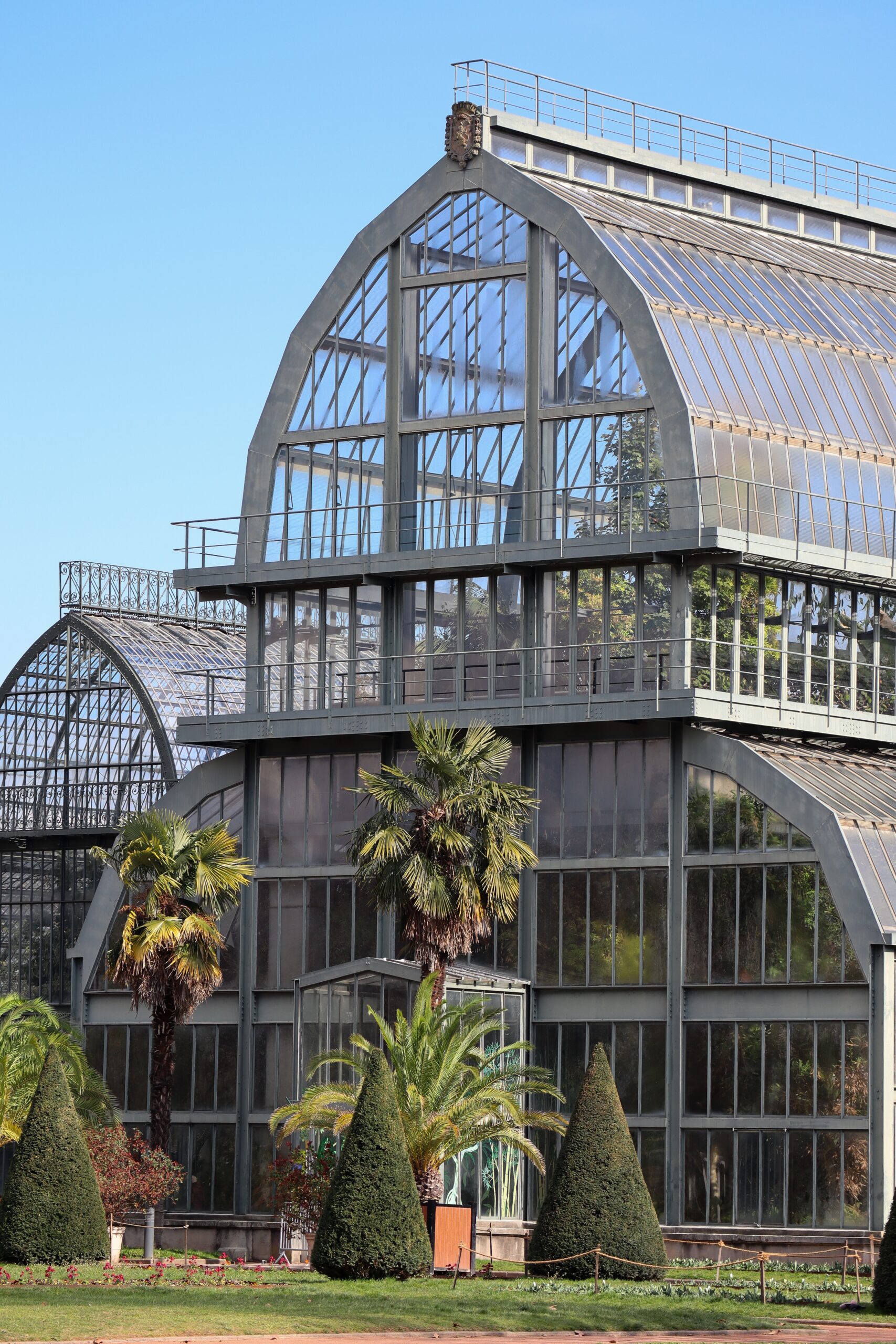
A GLANCE TO
The Present
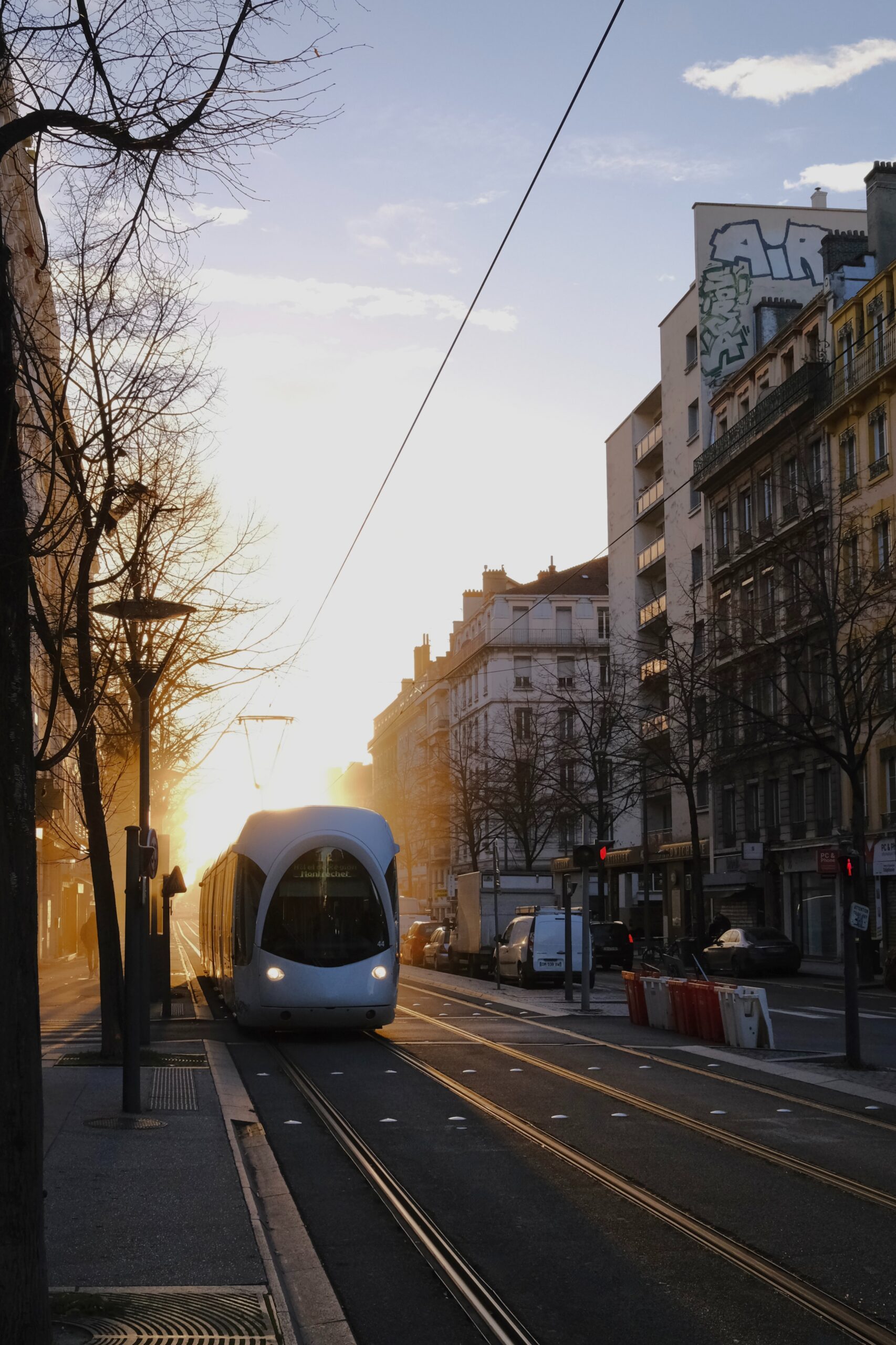
Lyon is a vibrant city in east-central France that continues to evolve and thrive in the present day. The city’s history and cultural heritage are still present in its architecture, museums, and culinary scene, but Lyon is also a modern and forward-thinking city.
One of Lyon’s strengths is its economy. The city has a diverse and dynamic business community, with strengths in sectors such as biotechnology, finance, and technology. It is also a major hub for transportation, with two major train stations and a large airport connecting it to destinations across Europe and beyond.
Lyon is known for its thriving cultural scene, with numerous museums, galleries, and cultural events taking place throughout the year. The city is particularly famous for its gastronomy, with numerous Michelin-starred restaurants and a thriving street food scene. The Les Halles de Lyon Paul Bocuse market is a must-visit for foodies, offering a wide variety of high-quality products from local producers.
The city is also committed to sustainable development, with a focus on reducing carbon emissions and promoting eco-friendly practices. Lyon has an extensive public transportation system, including a metro, tram, and bus network, and the city is working to expand bike-sharing and pedestrian-friendly areas.
In addition to its urban offerings, Lyon is surrounded by beautiful natural scenery. The Rhône and Saône rivers provide opportunities for boating and kayaking, while the nearby Alps offer skiing and hiking opportunities.
Overall, Lyon is a modern and dynamic city that balances its rich history and cultural heritage with a forward-thinking approach to business, sustainability, and quality of life. It is a city that is always evolving, and one that continues to attract visitors and residents alike with its unique character and charm.
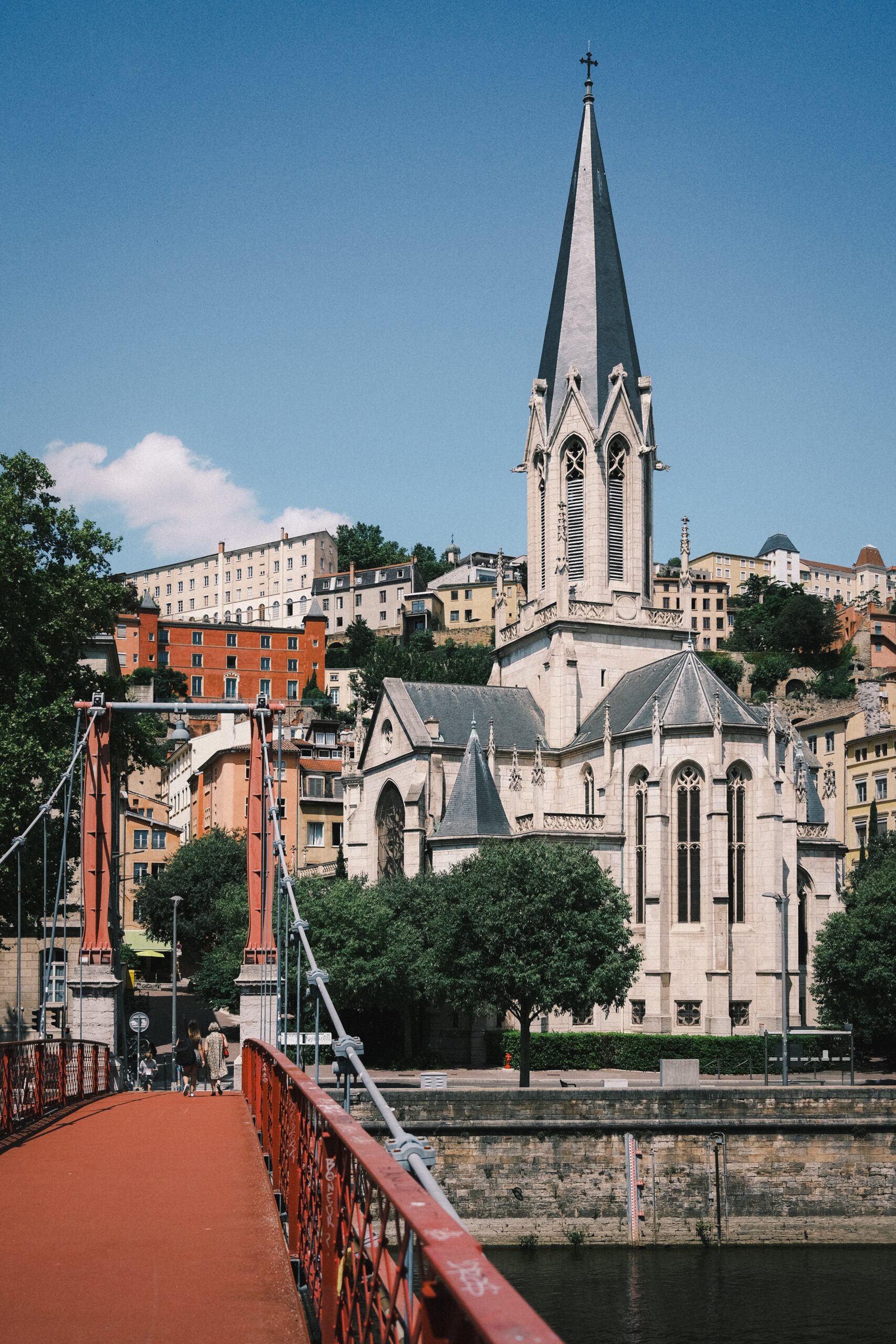
A GLANCE TO
The Future

Lyon is a vibrant city in east-central France that continues to evolve and thrive in the present day. The city’s history and cultural heritage are still present in its architecture, museums, and culinary scene, but Lyon is also a modern and forward-thinking city.
One of Lyon’s strengths is its economy. The city has a diverse and dynamic business community, with strengths in sectors such as biotechnology, finance, and technology. It is also a major hub for transportation, with two major train stations and a large airport connecting it to destinations across Europe and beyond.
Lyon is known for its thriving cultural scene, with numerous museums, galleries, and cultural events taking place throughout the year. The city is particularly famous for its gastronomy, with numerous Michelin-starred restaurants and a thriving street food scene. The Les Halles de Lyon Paul Bocuse market is a must-visit for foodies, offering a wide variety of high-quality products from local producers.
The city is also committed to sustainable development, with a focus on reducing carbon emissions and promoting eco-friendly practices. Lyon has an extensive public transportation system, including a metro, tram, and bus network, and the city is working to expand bike-sharing and pedestrian-friendly areas.
In addition to its urban offerings, Lyon is surrounded by beautiful natural scenery. The Rhône and Saône rivers provide opportunities for boating and kayaking, while the nearby Alps offer skiing and hiking opportunities.
Overall, Lyon is a modern and dynamic city that balances its rich history and cultural heritage with a forward-thinking approach to business, sustainability, and quality of life. It is a city that is always evolving, and one that continues to attract visitors and residents alike with its unique character and charm.
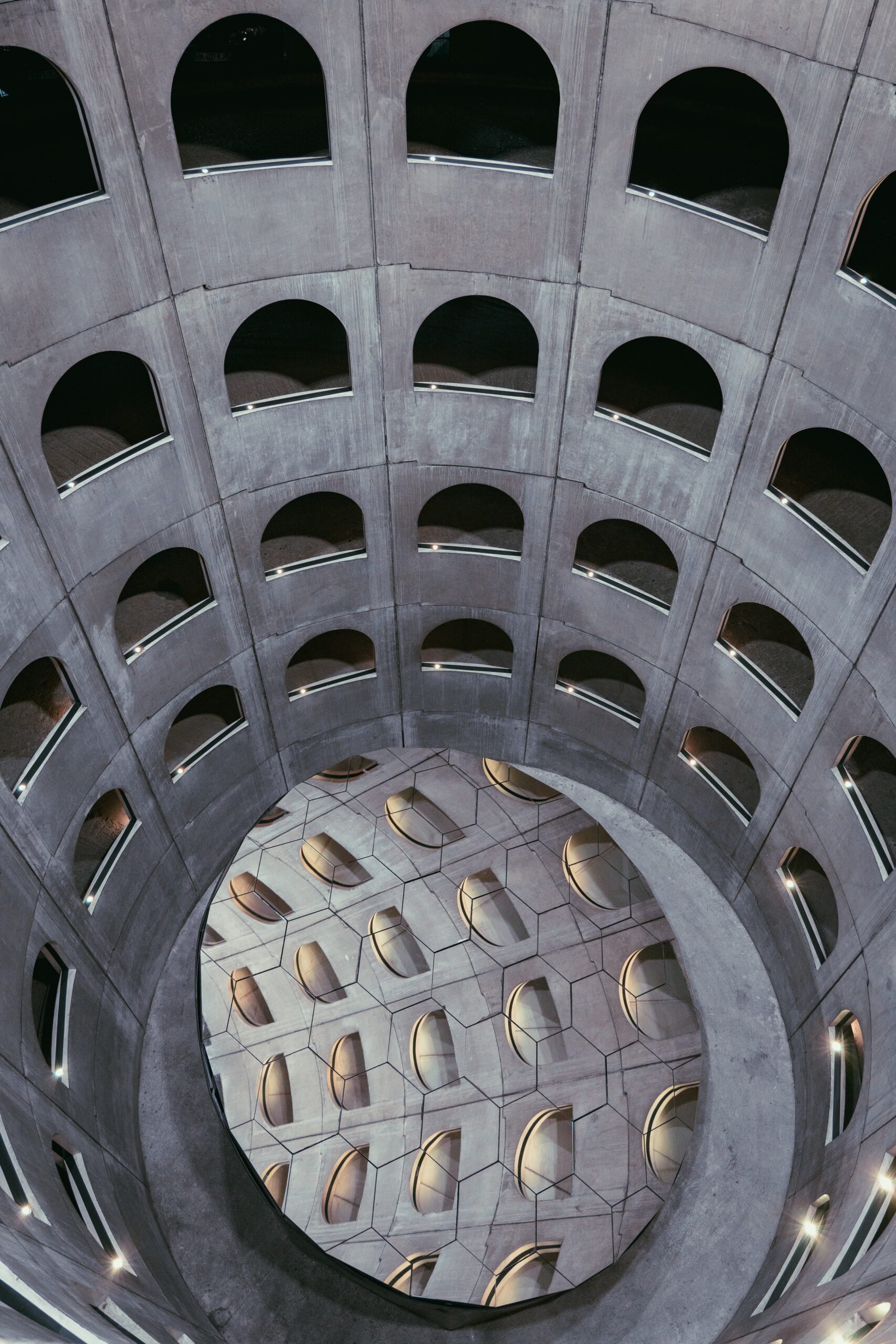
Frequently Asked Questions
Let’s dive into Lyon’s history with all the answers you need!
When was Lyon founded?
Lyon, originally known as Lugdunum, was founded by the Romans in 43 BC.
What is Lyon's historical significance?
Lyon has a rich history as a major Roman city and a center for silk production during the Renaissance.
Did Lyon play a role in the French Revolution?
Yes, Lyon was a key hub during the French Revolution, and it faced significant uprisings and conflicts.
How did Lyon contribute to the silk industry?
Lyon became a major silk-weaving center in the 18th and 19th centuries, influencing global fashion.
Were there notable figures from Lyon in history?
Yes, luminaries like the Lumière brothers, pioneers in cinema, were from Lyon.
What is the significance of the traboules in Lyon's history?
Traboules were constructed to maximize space in Old Lyon, creating narrower passageways compared to those needed for horse-drawn carriages. These covered passages were primarily used by silk workers to efficiently transport fabrics.
Did Lyon face challenges during World War II?
Lyon was a hub of the French Resistance, and it faced challenges under Nazi occupation during WWII.
How did Lyon contribute to gastronomy?
Lyon is renowned for its culinary scene, with traditional “bouchon” restaurants and contributions to French cuisine.
What monuments reflect Lyon's history?
The Basilica of Fourvière, the Roman Amphitheater, and the Old Town are notable monuments reflecting Lyon’s history.
Did Lyon play a role in the Renaissance?
Yes, Lyon was a major center for Renaissance trade and intellectual exchange.
How did Lyon evolve as an economic hub?
Lyon became an economic powerhouse during the Industrial Revolution, particularly in textiles and silk production.
What is Lyon's status as a UNESCO World Heritage Site?
Lyon’s historic center, Old Lyon, and the slopes of Fourvière are UNESCO-listed for their historical and architectural significance.
